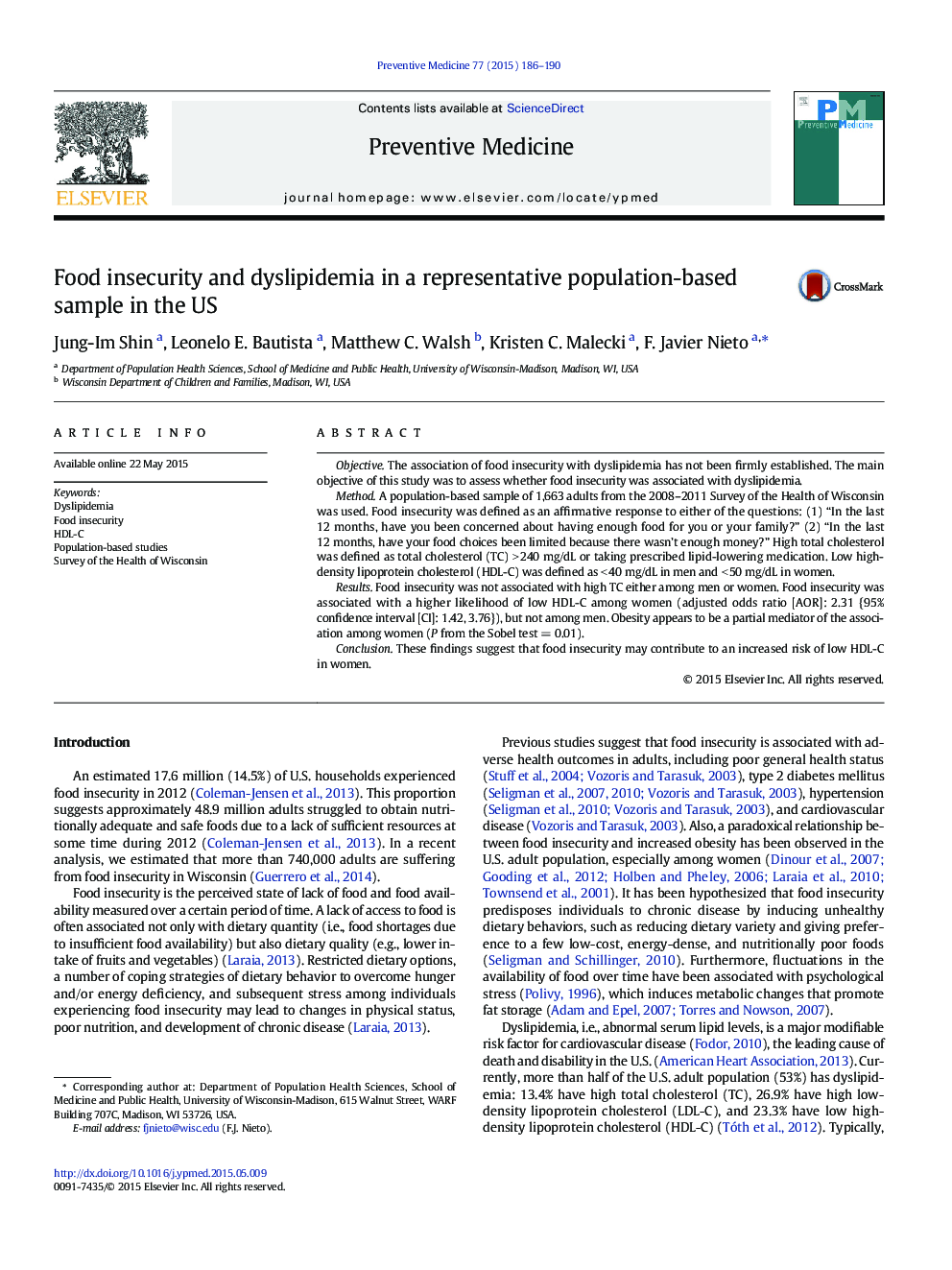| Article ID | Journal | Published Year | Pages | File Type |
|---|---|---|---|---|
| 6046761 | Preventive Medicine | 2015 | 5 Pages |
â¢The association of food insecurity with dyslipidemia was examined.â¢Food insecurity was not associated with high total cholesterol.â¢Food insecurity was associated with a higher likelihood of low HDL-C only in women.â¢Obesity appears to be a partial mediator of the association in women.
ObjectiveThe association of food insecurity with dyslipidemia has not been firmly established. The main objective of this study was to assess whether food insecurity was associated with dyslipidemia.MethodA population-based sample of 1,663 adults from the 2008-2011 Survey of the Health of Wisconsin was used. Food insecurity was defined as an affirmative response to either of the questions: (1) “In the last 12 months, have you been concerned about having enough food for you or your family?” (2) “In the last 12 months, have your food choices been limited because there wasn't enough money?” High total cholesterol was defined as total cholesterol (TC) > 240 mg/dL or taking prescribed lipid-lowering medication. Low high-density lipoprotein cholesterol (HDL-C) was defined as < 40 mg/dL in men and < 50 mg/dL in women.ResultsFood insecurity was not associated with high TC either among men or women. Food insecurity was associated with a higher likelihood of low HDL-C among women (adjusted odds ratio [AOR]: 2.31 {95% confidence interval [CI]: 1.42, 3.76}), but not among men. Obesity appears to be a partial mediator of the association among women (P from the Sobel test = 0.01).ConclusionThese findings suggest that food insecurity may contribute to an increased risk of low HDL-C in women.
